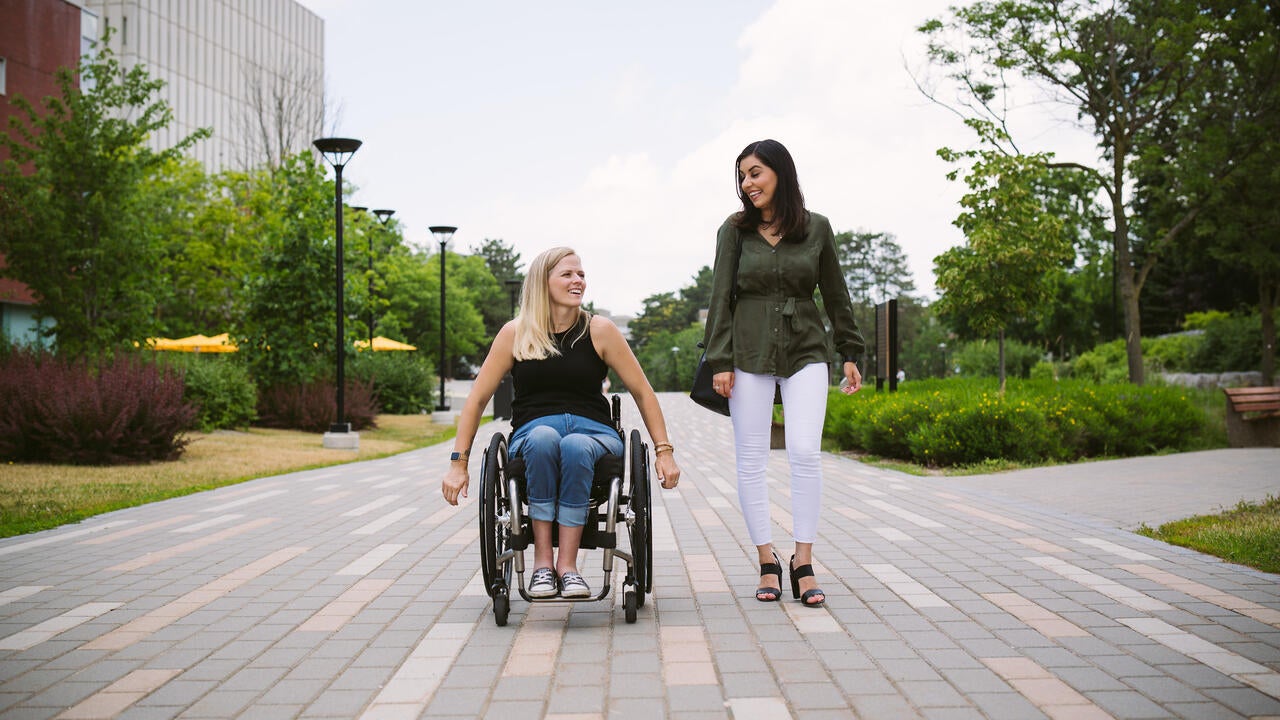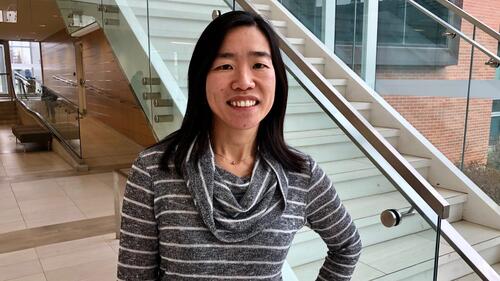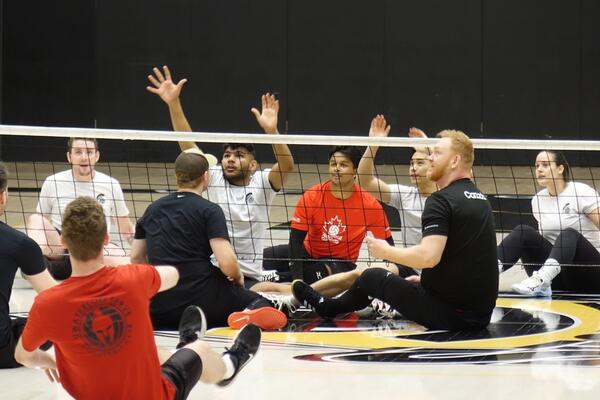
Waterloo celebrates National AccessAbility Week
Building awareness and inclusion in 2023 and beyond

Building awareness and inclusion in 2023 and beyond
By Dr. Christine Zaza Disability Inclusion OfficeIn 2023, National AccessAbility Week (NAAW) is from May 28 to June 3. The Government of Canada established NAAW to celebrate the contributions of disabled people, promote accessibility and recognize efforts to remove barriers.
“Inclusion is a core value at the University of Waterloo,” says Dr James Rush, vice-president, academic and provost. “We value diversity and recognize that everyone has strengths and challenges, regardless of their abilities. Our goal is to build a culture of inclusion where all members of our diverse community feel like they belong.”
Inclusion is a primary goal of Ontario’s Accessibility for Ontarians with Disabilities Act (AODA). Enacted in 2005, the AODA aims to make Ontario more accessible and inclusive for disabled people by 2025.
To promote accessibility in post-secondary education, AODA’s Post-Secondary Education Standards Final Recommendations Report 2022 was released. The 185 recommendations in this report were developed with extensive input from individuals with lived experience with disability.

Joyce Barlow, associate director of disability inclusion at the University of Waterloo.
Joyce Barlow, associate director, disability inclusion, is tasked with planning how Waterloo will implement the recommendations.
Barlow recognizes the importance of seeking consultation and feedback on accessibility initiatives in the University community. As she points out, there are many parallels with other equity-deserving groups on campus.
“The common quote is ‘nothing about us without us.’ It would be rather patronizing to suggest that something is more inclusive for disabled people when you haven’t asked them whether it is. We do that for many equity-seeking groups on campus, for our racialized community, our queer community and women-identifying community. And so disabled people are no different,” Barlow explains.
Accessibility tip: Provide advance notification of expectations. Let others know what to expect so they have time to plan for their own needs and determine whether they require accommodations. Knowing what to expect in advance benefits everyone, not just disabled people.
Waterloo’s commitment to accessibility is evident in the variety of initiatives throughout the community. For example, the visitor centre has increased the accessibility of campus tours for guests with disabilities, co-operative education has developed a resource to support employers in providing accessible co-op experiences for students with disabilities and the wayfinding project has been cataloguing power door operators on external entrances.
These and other initiatives are reported in the Multi-Year Accessibility Plan.
Collectively, Waterloo has a wealth of expertise in accessibility and universal design. For example, University Relations developed the University of Waterloo Inclusive Communications Guide, the Library developed an online module on universal design for learning and the Centre for Teaching Excellence created Accessibility in Teaching for instructors.

Read more
Inclusion of disabled people needs to be a priority during SDG Week

Read more
Inclusive and accessible education means prioritizing accommodation

Read more
Nasif Chowdhury balances athletic career with study in Recreation and Sport Business program
The University of Waterloo acknowledges that much of our work takes place on the traditional territory of the Neutral, Anishinaabeg, and Haudenosaunee peoples. Our main campus is situated on the Haldimand Tract, the land granted to the Six Nations that includes six miles on each side of the Grand River. Our active work toward reconciliation takes place across our campuses through research, learning, teaching, and community building, and is co-ordinated within the Office of Indigenous Relations.